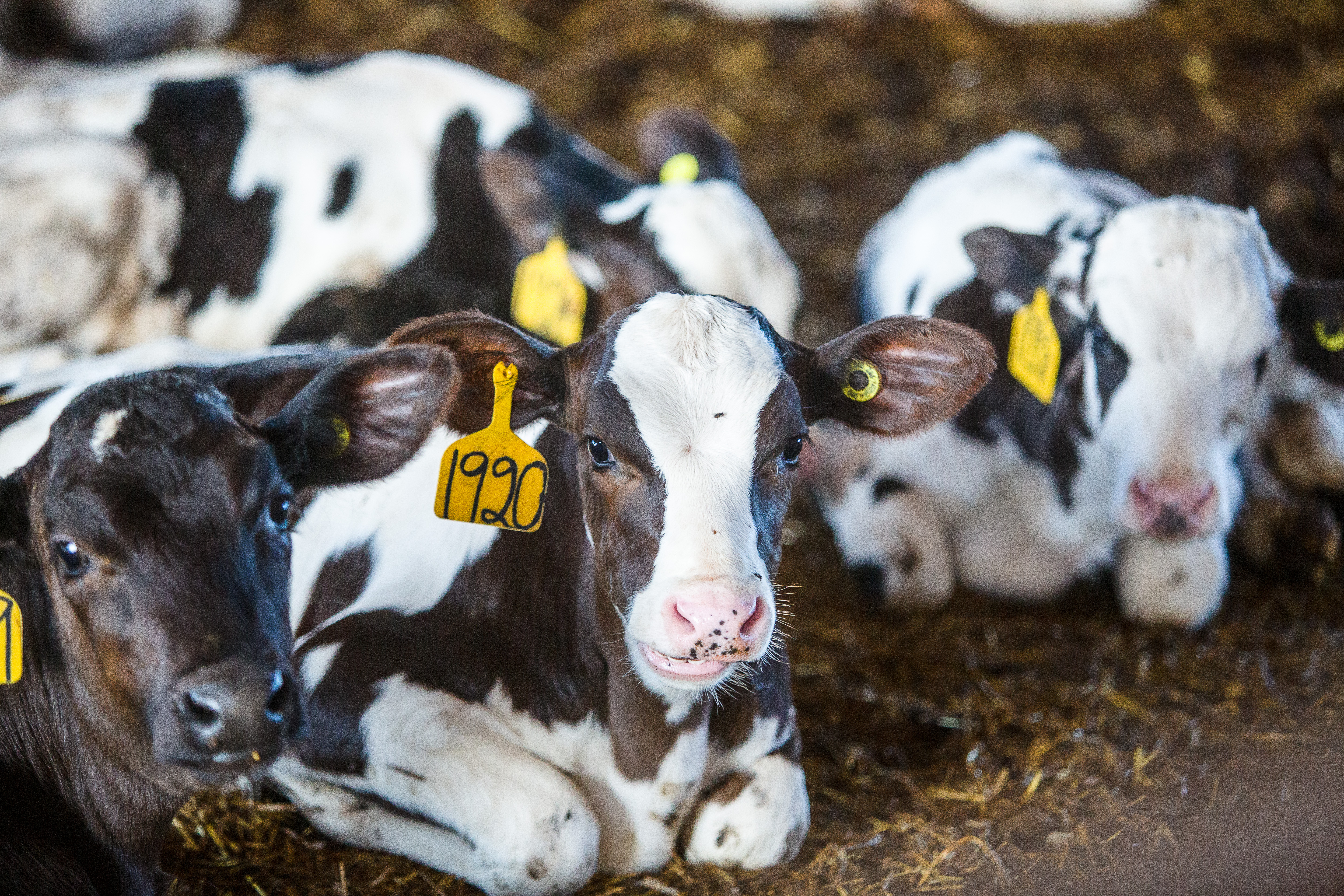A whole lot of water goes into that milk
A whole lot of water goes into that milk


Water is important for most species’ survival. Dairy cows, in particular, require large quantities to produce the creamy white liquid for which they are famous. It is important for dairy producers to provide plenty of water within a convenient location to keep their herd well hydrated.
“Cows need to consume between 30 and 50 gallons of water per day,” said Donna Amaral-Phillips, extension dairy specialist for the University of Kentucky College of Agriculture, Food and Environment. “That’s more than 415 pounds of water every day.”
That number may sound extremely high until the consumer realizes it takes up to 4.5 pounds of water to make just 1 pound of milk, and cows produce, on average, 70 pounds, or 8 gallons of milk each day, which is equal to about 128 glasses.
Milk is 87 percent water, and without sufficient water intake, a cow’s milk yield will suffer.
Dairy cows rely on saliva and other fluids to assist them in digesting feedstuffs. If they don’t get enough water it starts a chain reaction—digestion, feed intake and energy decrease.
“Managing water on a per-cow basis in a dairy herd can be quite difficult for any producer,” said Jeffrey Bewley, UK associate extension professor. “For this reason, dairy producers have to make decisions that benefit the entire herd. That’s why we allow the cows ample access to water at the UK Dairy—so they can drink as much as they want.”
Dairy managers have to make sure cows have access to water in the barn at a centrally located trough. Ideally, the trough will be near a feed bunk so it’s easy for cows to drink after eating. Cows usually drink the most after eating and after being milked.
“It’s important for the water trough to have enough space for multiple cows to drink at the same time,” he said. “Three to 5 inches of water space per cow is usually adequate, and the height of the trough should be 2 to 3 feet from the ground.”
One waterer per 20 cows will help ensure cows stay hydrated. The waterers should hold at least 5 gallons at time, with a refill rate of at least 2.5 gallons per minute to keep the fresh, clean water flowing. So while it may be hard to monitor each cow’s water intake, providing enough fresh water and space for the entire herd usually gets the job done.
